Oftentimes, marketers focus heavily on Google when vying for traffic. This makes sense considering Google is undoubtedly the most popular search engine, with over 85% of the search market share.
But that popularity makes it the most challenging search engine on which to rank highly. You’re missing critical opportunities for traffic if you neglect other search engines.
Here, we’re going to explore the top 11 search engines worldwide, so you can discuss some other potential traffic sources in your next SEO meeting.
Note: To compile our list, we looked at the worldwide market share of search engines on desktop and mobile from April 2022 to April 2023.
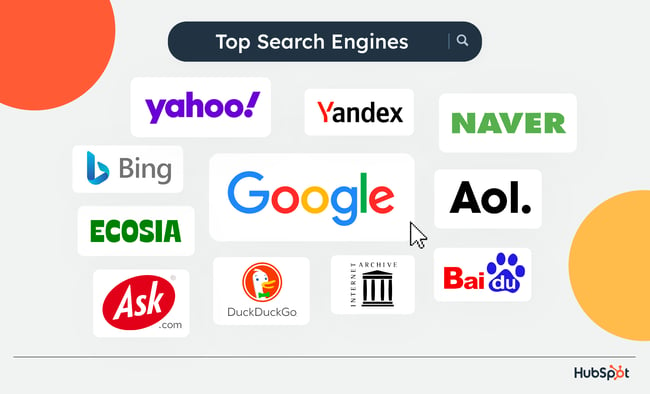
1. Google
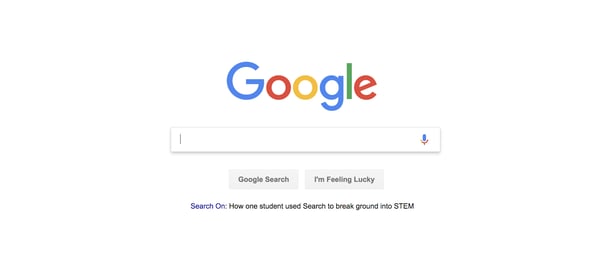
Image Source
With over 85% of the search market share, Google is undoubtedly the most popular search engine. Additionally, Google captures almost 95% of mobile traffic.
The large traffic potential makes Google a viable option when aiming to capture organic or paid search. The downside, of course, is almost everyone is competing for the same traffic.
Also keep in mind Google’s algorithm, like featured snippets, aims to fulfill users’ needs directly on Google, so they don’t need to click any links. These features, and Google’s popularity, might make it hard for you to capture the website traffic you want.
2. Bing
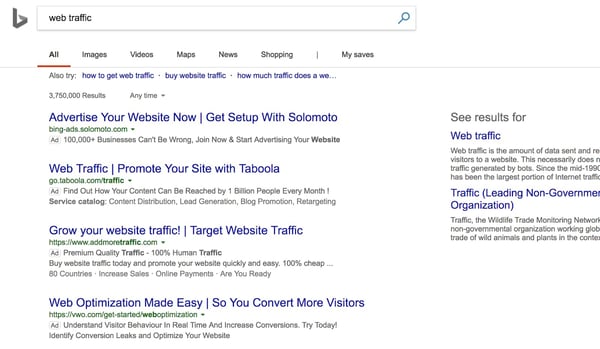
Image Source
Bing, Google’s biggest contender, rakes in 7% of U.S. searches desktop searches but only 1.5% of mobile searches. This engine also powers Yahoo, the U.S.’s third-biggest search engine.
Bing’s search pages look remarkably similar to Google’s, with the same categories and a similar white background, with blue links and green URLs.
However, Bing additionally offers “Rewards,” a program that gives you points when you search or shop on the engine. You can then redeem those points for gift cards, nonprofit donations, and more.
3. Yahoo!

Image Source
Admittedly not the sleekest search engine interface, Yahoo! still manages to capture third place in our list, with just over 2% of the worldwide market share.
Yahoo! is powered by Bing, so search results are incredibly similar between the two search engines. However, it’s still an important search engine in its own right, with over 600 million total monthly users.
4. Yandex
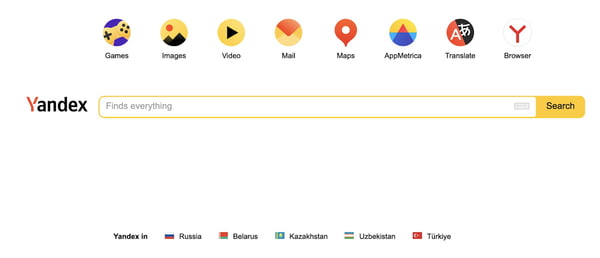 Image Source
Image Source
Russian search engine Yandex has roughly 2% of the worldwide market share. However, it is the most widely used search engine in its home country, with Google holding the number two spot. If you do business globally and are looking to reach Russian customers, there are a few things to keep in mind.
For example, Yandex has many quality indicators or badges it can display alongside search results. One of the most prominent is the site quality index or SQI which indicates how useful your site is to users.
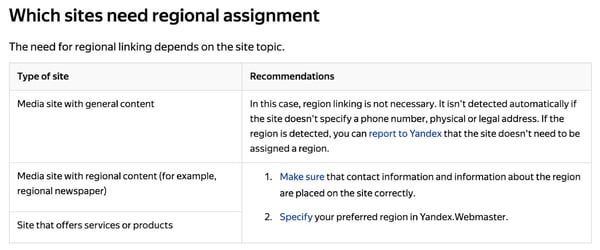 Image Source
Image Source
Like Google, Yandex also takes into consideration whether or not a user’s query has local intent and will display regional-dependent results. To account for this, you’ll need to go into Yandex’s webmaster tools and set a site region.
5. DuckDuckGo
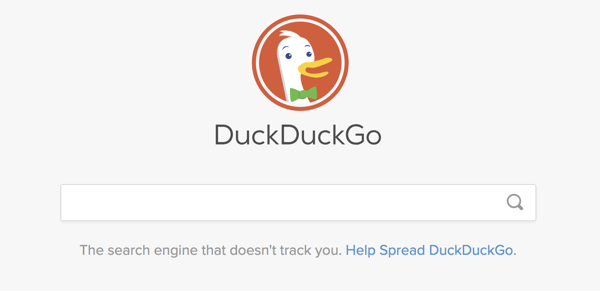
Image Source
If you’re uneasy about targeted ads or don’t want your search data stored, you might want to try DuckDuckGo, which touts itself as “The search engine that doesn’t track you.”
DuckDuckGo doesn’t track, collect, or store any information, so you’re safe to search for shoes without feeling bombarded by subsequent Macy’s ads. It’s worth noting there are still ads on DuckDuckGo — just not personalized ones.
Additionally, DuckDuckGo has a clean interface and only one search page, making it easier to navigate than other search engines. With nearly 94 million daily direct searches as of 2022, it’s slowly gaining steam in the search market.
6. Baidu
 Image Source
Image Source
Baidu is China’s largest search engine, capturing over 40% of China’s search market. The search engine looks similar to Google (besides being in Mandarin), with a white background, blue links, and green URLs. Like Google, Baidu aims to incorporate more rich features in the SERPs.
If you have an interest in appealing to the Asian market, Baidu is a good option to consider.
However, the search engine censors certain images and blocks pro-democracy websites. If you’re comparing search results, you’ll find a more comprehensive results list on Google.
7. Ask.com
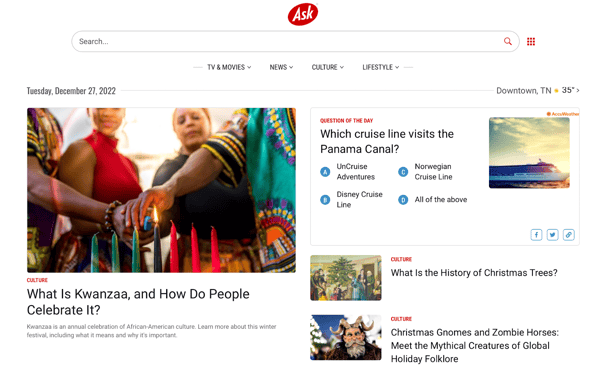
Image Source
Ask.com, formerly known as Ask Jeeves, is a search engine designed to answer questions. According to Ask.com, its mission is to “enable curious people to find the information they need.”
The interface of Ask.com is similar to Yahoo’s interface. However, unlike Yahoo, which is powered by Bing, Ask.com is its own standalone search engine. Ask.com sees most of its traffic from users located in the United States (53% of its traffic, to be exact.)
8. Naver

Image Source
Naver is South Korea’s second most popular search engine, claiming nearly 34% of the search engine market. Naver’s interface is entirely in Korean, and there is no English version of the website.
However, Naver is more than a simple search engine. Users of the website can access news content, search suggestions, and more.
Naver is a localized search engine, meaning it does not crawl and catalog the entire Internet. If you’re targeting the South Korean market with your content, make sure your SEO matches the criteria of South Korea’s second most popular search engine.
9. Ecosia
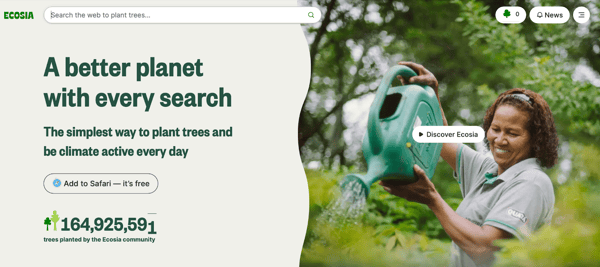
Image Source
Ecosia is “the search engine that plants trees.” For every search a user makes with Ecosia (either the webpage or its free browser extension), Ecosia will plant trees in vulnerable areas with the profit the company makes from its searches. To date, Ecosia has funded 170 million trees.
Ecosia is growing in popularity, but it is especially popular in Germany where the company is based. Worldwide, Ecosia has gained 0.11% of the search engine market share. Like Yahoo!, Ecosia is powered by Bing.
10. AOL

Image Source
AOL, formerly known as America Online, is both an online media company and a search engine. The interface of the website features a search bar and national news articles, along with local news and weather.
Most of AOL’s traffic is generated from the United States, 85.7% to be exact.
11. Internet Archive
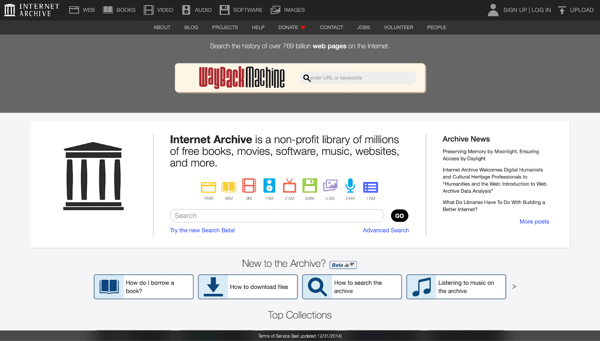
Image Source
Internet Archive is a different kind of search engine. As its name implies, Internet Archive is a free archive of books, movies, software, music, websites, etc.
Instead of attempting to rank in this search engine like bloggers would try to do for other search engines, users can sign up for a free account and can upload their content to the archives.
Most of Internet Archive’s audience is located in the United States. However, the search engine is gaining popularity in other countries, such as Great Britain and India.
Emerging Search Engine Trends
The top search engines may have another competitor vying for user business in the near future, as Ahrefs has announced they are working on a search engine of their own.
Currently in beta, Yep, is unique from other platforms as it shares 90% of its ad revenue with content creators. With this model, Yep aims to encourage more people to share their knowledge and high-quality content.
Google is always working to prioritize good content, with improvements like its 2022 Helpful Content Update. HubSpot’s Head of SEO Content Aja Frost says the update has huge implications for the industry.
“First, Google is sending a strong signal that content written by humans is preferable to content by computers. (Ironic, given virtually all of the SERPs are algorithmized.)”
Frost also points out that this update should encourage SEOs to take a more comprehensive approach to site performance.
“This update is also reinforcing the idea that your domain is one entity, and content on one part of your website will impact the performance of another part of your website,” Frost explains. “With this in mind, SEOs should be looking at their site as a whole — not isolated sets of pages.”
Think Beyond Google
Ultimately, it’s essential to consider alternative traffic opportunities besides Google when creating an SEO strategy.
By diversifying your sources, you’re more likely to capture the first page on SERPs, and you’re in a better position to find a truly ideal target audience.
This article was originally published in September 2018 and has been updated for comprehensiveness.

![]()



![Read more about the article Which Social Media Channels See the Most ROI? [New Data + Expert Tips]](https://www.dimaservices.agency/wp-content/uploads/2021/08/b0f73a5e-16e4-41fd-9511-8564efc560a7-300x40.png)